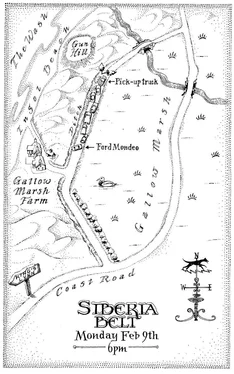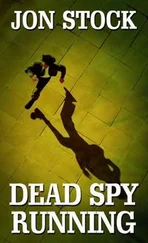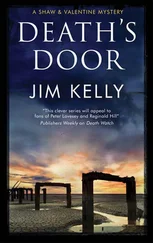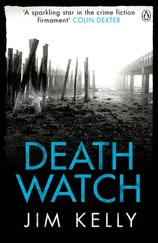Jim Kelly - Death Wore White
Здесь есть возможность читать онлайн «Jim Kelly - Death Wore White» весь текст электронной книги совершенно бесплатно (целиком полную версию без сокращений). В некоторых случаях можно слушать аудио, скачать через торрент в формате fb2 и присутствует краткое содержание. Жанр: Полицейский детектив, на английском языке. Описание произведения, (предисловие) а так же отзывы посетителей доступны на портале библиотеки ЛибКат.
- Название:Death Wore White
- Автор:
- Жанр:
- Год:неизвестен
- ISBN:нет данных
- Рейтинг книги:5 / 5. Голосов: 1
-
Избранное:Добавить в избранное
- Отзывы:
-
Ваша оценка:
- 100
- 1
- 2
- 3
- 4
- 5
Death Wore White: краткое содержание, описание и аннотация
Предлагаем к чтению аннотацию, описание, краткое содержание или предисловие (зависит от того, что написал сам автор книги «Death Wore White»). Если вы не нашли необходимую информацию о книге — напишите в комментариях, мы постараемся отыскать её.
Death Wore White — читать онлайн бесплатно полную книгу (весь текст) целиком
Ниже представлен текст книги, разбитый по страницам. Система сохранения места последней прочитанной страницы, позволяет с удобством читать онлайн бесплатно книгу «Death Wore White», без необходимости каждый раз заново искать на чём Вы остановились. Поставьте закладку, и сможете в любой момент перейти на страницу, на которой закончили чтение.
Интервал:
Закладка:
Peter,
The attached may help. I still think you should let it lie. But I’m not sure what Jack would do — so do with this what you think is right.
Timber
Timber had set about finding Giddy Poynter with exemplary thoroughness. The child’s ordeal in the rat?infested waste bin had been enough to disturb a mature adult, let alone a small, timid boy of twelve. So Timber Woods had gone to the record office at social services. Gideon Poynter had been an outpatient for three years after the incident in 1997, at the child psychology department at the Queen Vic. Absence from school on medical grounds was the hallmark of his academic career. He suffered from stress and anxiety, manifested by a series of uncontrollable phobias. Giddy, living now in sheltered housing in Lynn, attended a mental health unit twice a week. The patient suffered from profound claustrophobia, an irrational but almost tangible fear of being trapped. He had lived rough on the streets of Lynn for six months before the council was able to find him a flat in which each and every window could be opened. He’d wanted a balcony too, just big enough for a chair, on which he often slept if the weather was mild. There’d been a home number and mobile on the file for Poynter’s social worker so Shaw had phoned. He promised he’d tread carefully, to respect Giddy’s fears. In return he’d got an outline of Giddy’s daily routine.
Ahead, along the river path, he could see the graveyard
The morning was still dark so that the steady stream of traffic overhead, thrumming, traced a necklace of lights in a graceful curve over the water.
Shaw stepped through a metal gate and walked amongst the graves. There was a bench under a single lamp post which splashed a pool of jaundiced light on the snow. Above he could see bats flitting in the girders, roosting like black snowballs stuck to the rivets. He brushed the snow off the seat and sat waiting, emptying his mind, trying not to think of death.
When he saw the small shambling figure with thin, lank hair, he thought he must be wrong. Giddy would be twenty?three, twenty?four, a young man still despite the horrors of his short life. This man was as ageless as all those who lived on the streets, hidden from the world like a leper, wrapped in a formless heavy coat. Clutching a plastic supermarket bag to his chest with one hand, he
It took him too long and Shaw guessed that he’d seen him and that he always sat on this bench; although there was another.
So Shaw stood. ‘I’m sorry,’ he said. ‘I know this is your place at this time. My name’s Peter. I’m a policeman. I just wanted a word, Giddy.’
The man turned, a knee on the wet grass. His face was fine, a thin nose, delicate cheekbones, and a high, brittle forehead. A miniature face, stunted. Acne disfigured the skin and a half?hearted moustache straggled over his mouth, hiding his upper lip.
He didn’t respond and Shaw wondered if he was shivering or shaking. ‘Giddy. Can I talk to you?’ Shaw opened a small rucksack he’d put at his feet, taking out a thermos flask. ‘It’s tea, would you like a cup? Bernard said you liked tea in the morning.’
Bernard Parkin was the man Shaw had spoken to the previous day. He was Giddy’s social worker, and the closest thing he had in the world to a friend.
A pigeon flapped around the headstones and Giddy stood quickly, walking sideways to the bench. He sat hunched against the armrest.
‘I always sit here,’ he said. ‘It’s under the sky.’
Shaw leant back and looked directly up. He was right, the edge of the roadway above was twenty feet to one side, giving a clear view of the clouds of dawn.
‘Mum’s grave,’ said Giddy. ‘Yes,’ said Shaw.
‘I’m sorry, Giddy. It’s about the boys who locked you up.’
Giddy tried to look into Shaw’s face. The eyes were dove?grey, and one of them oscillated slightly, as if struggling to focus. ‘I never talk about that.’
‘I know. I’m going to speak to those boys soon — the three that were caught and punished. Do you want me to say anything to them?’
Giddy thought about it. ‘Tell them I’m happy now. Better.’
Shaw nodded. ‘And the fourth one — I just thought you might have known who it was. Did you, Giddy?’
Giddy looked at him then, the grey eye wandering. ‘Stop following me.’
‘I’m not following you.’
He stood, one arm jerking suddenly, the plastic bag gyrating. ‘Fucking are.’ He walked away, then turned. ‘Dark glasses yesterday,’ he said. ‘But I know. You were in the stairwell last night, and then by the park this morning. I don’t like it, it’s like being trapped outside. Stop it.’
He walked back to Shaw, looked him in the face. ‘Stop it.’ He looked at the graveyard as if seeing it for the first time. ‘I don’t want you here, but I can’t leave.’
Shaw nodded. ‘I’ll go. If you want to talk, or you need help, ring this number.’ He put a card on the seat, and a?10 note, weighing it down with one of the limpet shells.
As Valentine drove east along the coast road, a hoar frost had the countryside in its grip, adding bone?white trees to a landscape of fresh snow. Shaw tried to focus on the events on Siberia Belt the night Harvey Ellis died. The central mystery remained: who had killed him, and how? They’d now interviewed everyone in the line of stranded cars at least twice: all except the teenager who had run from the scene that night as the helicopter had swung in to land on Ingol Beach — young Sebastian Draper. His solicitor had phoned to say he’d be available for interview at nine that morning — but that his client wanted to meet at a scrap?metal yard on the edge of Wells. He had something to show them, as well as tell them.
John Kimbolton amp; Sons was a graveyard for cars. It lay a mile out of town on the saltmarsh, the tottering piles of wrecked chassis only partly hidden behind an ugly hedge of leylandii tinted with frost. They flashed their warrant cards at a mechanic working with a welding torch by the entrance.
‘Just looking for a vehicle,’ said Valentine. ‘Nothing to worry about.’
Draper arrived on the stroke of the hour in a powder?blue Bentley driven by his solicitor. The 18?year?old hadn’t chosen his own clothes that morning: a charcoal?grey suit, the blue tie knotted savagely tight, the shirt as white as
They shook hands; two detectives, solicitor and client.
‘OK. Sebastian? Why here?’ said Shaw, the snow beginning to fall. They stood by a little column of six crushed cars, one on top of the other. Shaw rested an ungloved hand on the nearest chassis, then pulled it back as he felt his skin freeze to the metal.
Draper had rehearsed his story, which didn’t mean it wasn’t true.
The gap?year idea had been a disaster. All his friends except Gee Belcher had left the village. He didn’t want to travel abroad, not alone. His parents were in London during the week. Sarah, his girlfriend, had left for university at Durham. His father paid him an allowance but it wasn’t much and so he’d got a summer job with the council, filling holes in the road. He’d made friends, the wrong kind of friends, and stayed on when winter came. He’d get into Lynn by bus, or if he could he’d borrow Rod Belcher’s car, the BMW. They’d sus out likely cars, drink enough to overcome the fear they’d be caught, then pile in and drive out here to Kimbolton’s. Never before seven, the only rule, and cash in hand:?100 per vehicle — any vehicle. They never knew what happened to them but it was easy to guess: there was a paint shed,
Valentine noted that the mechanic had stopped welding and was now on a mobile phone.
‘They gave us the cash in an envelope. Twenties, always twenties. Then we had to go back and wait by the office for a lift into town. That was it, every time.’
Читать дальшеИнтервал:
Закладка:
Похожие книги на «Death Wore White»
Представляем Вашему вниманию похожие книги на «Death Wore White» списком для выбора. Мы отобрали схожую по названию и смыслу литературу в надежде предоставить читателям больше вариантов отыскать новые, интересные, ещё непрочитанные произведения.
Обсуждение, отзывы о книге «Death Wore White» и просто собственные мнения читателей. Оставьте ваши комментарии, напишите, что Вы думаете о произведении, его смысле или главных героях. Укажите что конкретно понравилось, а что нет, и почему Вы так считаете.










